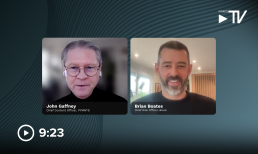Virtual cards have a reputation as a paperless alternative to other payment rails and as an especially secure and efficient way to make B2B payments in particular. But virtual payments aren’t entirely paperless; often, suppliers receiving virtual card information do so via fax, which they have to print out and manually input into their systems.
But a new feature from virtual card firm Conferma is looking to heighten virtual card adoption in B2B transactions and do so without the fax machine.
“I’ve spent the last seven years defending faxes,” said Conferma CEO Simon Barker in an interview with Business Travel News, published on Wednesday (Sept. 7). “Now, I feel slightly hypocritical to say, ‘Now, we have a different way that’s better than faxes.'”
Conferma‘s new solution enables suppliers to receive virtual card confirmation via email. According to reports, Payment Card Industry Data Security Standards did not allow this without encryption of the information being sent.
“It always felt like email was the answer to transmission and delivery of virtual cards, but making email secure was pretty much impossible,” the CEO said. Reports explained that newer email servers, like Microsoft Exchange, can now accommodate the necessary levels of encryption and security.
Delivered via Conferma Connect, the email-based way to send virtual card confirmations adheres to encryption standards. Reports said the solution is particularly useful to travel suppliers, like hotels, that receive virtual card payment via fax.
Advertisement: Scroll to Continue
Conferma Connect will roll out as a standard service for its corporate clients. The solution was first launched in April, however, with Mexico-based hotel chain City Express Hotels, which became the first to process virtual cards sent via email for authorization.
CEO Barker told the platform that the company does not expect Conferma Connect to be a revenue generator. Instead, the solution is intended to support virtual card adoption and use.
“Our business is about driving more and more virtual card adoption and delivery around the world,” he said. “We don’t want to introduce a new cost.”




